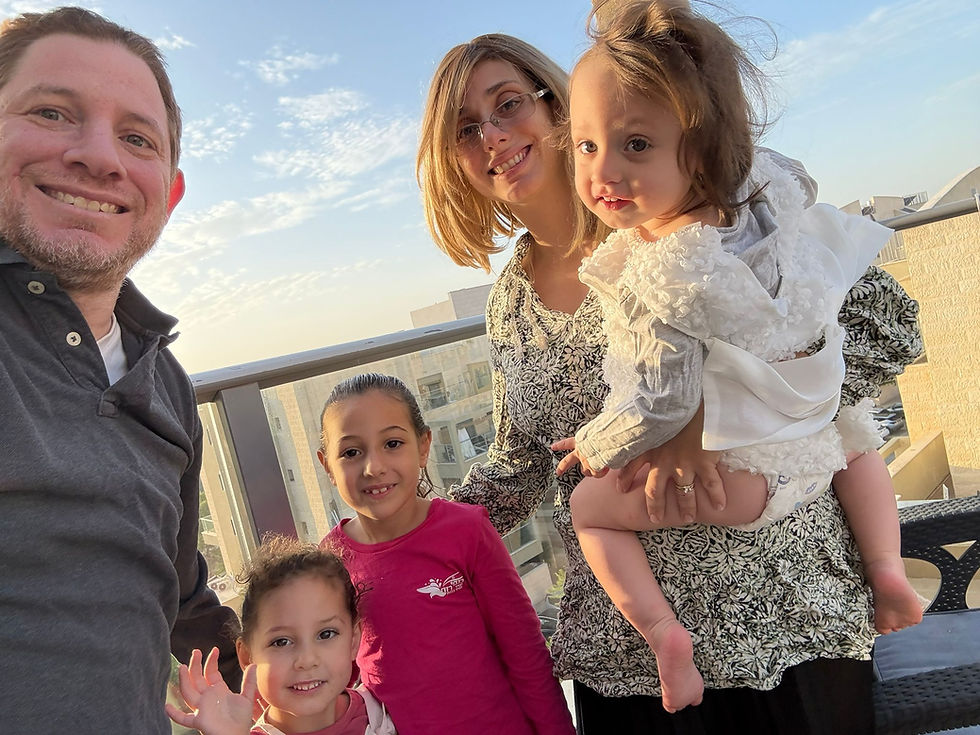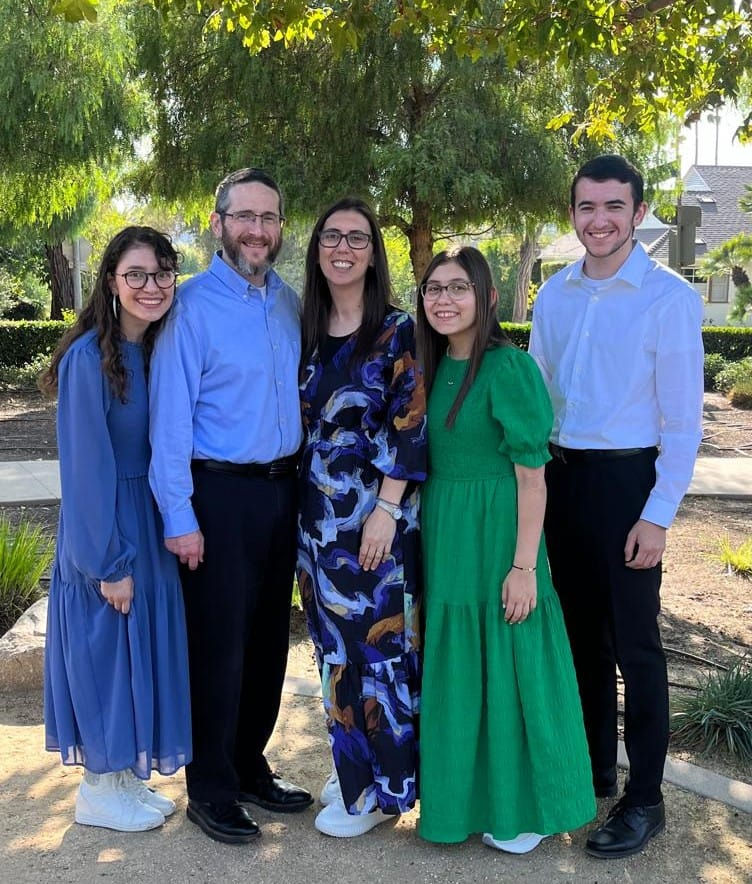Rabbi Frank Breslau: A Chaplain, Paratrooper, and Master IBM Inventor
- Tehilla Kanter
- Jan 4, 2023
- 4 min read
Updated: Jan 5, 2023
Growing up on the South Side of Chicago, Rabbi Frank Breslau was one of the first students to attend what was then the South Side Jewish Day School. Following 8th grade, Rabbi Breslau attended the Chicago Jewish Academy on the West Side of Chicago, commuting daily. When he began to advance in gemara in his senior year, Rabbi Breslau attended the Yeshiva in Skokie, commuting every day from the Southeast side, a 2-hour trip via public transportation. After his gemara shiurim, there was a bus that went from the high school in Skokie to the West side, where he had Hebrew with Rabbi Zvi Hirsch Isenberg. In 1961, Rabbi Breslau graduated high school. At that time, HTC had an extension of the Yeshiva in the Chicago Downtown Loop for full-time college students. Rabbi Breslau, while going for his bachelor’s degree at the Illinois Institute of Technology, attended engineering classes in the morning while attending classes in the Loop Synagogue in the afternoons, taught by Rav Herzel Kaplan, Dr. Babad, Rabbi Eliezer Berkowitz, and Rabbi Zvi Hirsch Isenberg. In 1963, after finishing his classes and obtaining semicha, he began working at IBM.
At that time, the Vietnam War was heating up. In 1967, Rabbi Breslau volunteered as a chaplain, the only Jewish chaplain in his class. Soon after, the 6-day war began. “Being that Shavuos was a little over a week away, I told everybody how we have the Pentecost holiday coming up and we have services,” said Rabbi Breslau, “so they should inform their units and all the Jewish personnel. One of the chaplains asked if the Jewish soldiers would keep fighting if a war broke out on the holiday or on the Sabbath. ‘When that occurs will they keep on fighting?’ Off the cuff, I said, ‘no, no, it won’t last that long. It’s going to be a six-day war.’ So, when it actually was a six-day war, they said ‘we got to save that Jew because he knows what’s going on!’”
Though he was afraid of heights, eventually Rabbi Breslau was convinced to go to airborne school and became a paratrooper and became part of the 101st airborne division. Five months later, the division deployed to Vietnam. Soon after, they assigned him to a combined army-marine outfit in the northern part of South Vietnam, where he spent nine months trying to visit the Jewish Army and Marines out in the field.
“My favorite story,” said Rabbi Breslau, “is how I got from place to place. One of my predecessors ordered 400 cases of kosher wine, and mistakenly, 4,000 cases ended up in Vietnam. I would get several cases and take a bottle to the Marine Operations Officer in charge of helicopters in the northern portion of South Vietnam. I’d put the bottle on his desk and say ‘listen, I’m carrying around this glass bottle and I’m afraid it’s going to break, and I’ll smell like wine, so I’ll leave it here.’ He’d look at the bottle and say, ‘chaplain, is there anything I can do for you?’ And I’d say ‘funny you should mention it! I’d like to visit some northern outposts.’ The following day, the helicopter gunship took me from outpost to outpost.”
With the help of Rabbi Breslau, the Jewish army members were able to set up a kosher kitchen, pooling their resources to collect cheese, eggs, and more. “We ate better than the rest of the soldiers in the mess hall,” said Rabbi Breslau. “One mother wrote to me and said ‘what did you do to my son, Norland? At home he doesn’t keep kosher. Now, suddenly, he’s writing to me asking me to send him kosher cheese?’” Rabbi Breslau even had his parents send 500 Sinai 48 kosher salamis that they used to break the fast on Yom Kippur.
For his efforts, Rabbi Breslau received the bronze star and an army commendation medal, along with high ratings on his report. After spending his last year at Fort Dix, Rabbi Breslau left the army and earned his master’s degree at NYU. He went to work full-time for IBM, spending close to 50 years there as an electrical engineer, systems engineer, marketing representative, and finally, a project manager. Additionally, with the help of a small group of people, Rabbi Breslau came up with several invention ideas, obtaining 25 patents by the time he retired and becoming the first master inventor in IBM’s global services unit. He received 13 awards for his patents. He also ran an invention disclosure team, giving others the ability to do what he did.
Today, Rabbi Breslau lives with his wife in Teaneck, NJ. For him, the time he spent at HTC was extremely impactful. “I really enjoyed my time at the Yeshiva,” he said. “One of my rebbeim, Rabbi Aberman, taught Tanach. But what I really learned from him was conciseness. When he gave an exam, if you could summarize the answer correctly in one sentence, he gave you extra credit. That’s one thing that I took from him and still use today, especially when I speak in shuls.
“Another lesson I took came from Rabbi Herzel Kaplan. When we were at the Loop Synagogue he said to me, ‘look at this big shul, you could become a rav of a shul like this!’ I said, ‘I would rather be a ba’al habayis that supports an orthodox rabbi than be the rabbi because rabbis need more ba’alei batim that support them.’ He looked at me and said, ‘Breslau, you successfully distilled all the learning into a practical takeaway.’ That’s how I feel today. I’ve been very active in various committees in shul, I’ve been the head of the Chevra Kadisha for 25 years in Teaneck and started a cemetery committee where we buy cemetery plots.
“I thoroughly enjoyed and was enriched by my experience at the Yeshiva. I learned a lot, but more importantly, I learned how to learn. I have very fond memories. It was a trek every day, but I thought it was very worthwhile.”














Comments